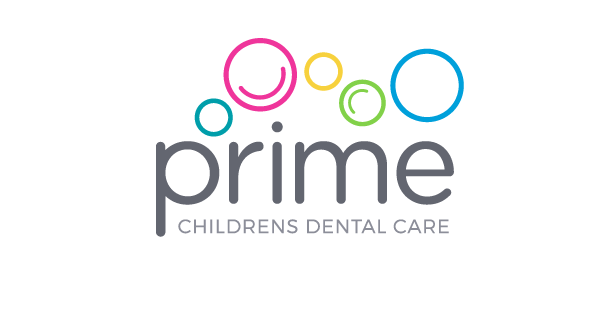
Your baby’s first dental visit
Did you know that your baby could benefit from a trip to our dental practice? Whether you can spot their first tooth or they still have a big gummy smile, it’s never too early to practice good oral hygiene and arm yourself with the information you need for your growing child. At Prime Children’s Dental Care, we work with parents all over Perth to prevent, identify and address common dental issues in infants.

For most babies, teeth begin to appear at 6 to 12 months. A very small number of babies develop teeth before 3 months and a tiny number can even be born with baby teeth. We recommend coming to visit us before your baby turns one or when their first tiny tooth erupts. This way, we can talk to you about:
When should you take your baby to the dentist?

-
Mouth and teeth cleaning
This includes brushing twice daily with an appropriate toothpaste (around 18 months of age based on risk factors) and flossing when teeth start touching each other.
-
Dummy or digit-sucking habits
We can advise on when and how to stop and what may happen if prolonged.
-
Feeding habits and frequency
We support breastfeeding mothers, but also understand if this is not a choice or an option for you.
-
Tooth decay prevention
Assessment of decay risk to facilitate the appropriate preventive strategies as the primary dentition begins to erupt. Provide decay prevention information.
-
Safety and dental trauma prevention
Counselling regarding safety and prevention of face and mouth trauma including play objects, dummies, car seats, electrical cords and injuries due to falls when learning to walk.
-
Lip and tongue ties
Identifying and managing these in conjunction with a lactation consultant.

Lip tie and tongue tie dentists in Perth
Dentistry doesn’t just involve teeth – we also look at gums, tongues, lips and the inside of mouths. If you’re a new parent struggling with feeding your baby, our caring infant dentists can help.

What is a lip tie and tongue tie?
A lip tie occurs when the frenum (a piece of tissue behind the lip) is too thick or too stiff and stops the upper lip from moving freely. Similarly, when the frenum under the tongue is tight or shorter than normal and prevents the tongue from moving freely, this is called a tongue tie.
Preventive measures for lip and tongue ties
If a lactation consultant has diagnosed your baby with a lip or tongue tie that is affecting function, our dentists can complete a frenectomy. As parents ourselves, we understand that any procedure on your baby can be daunting, but our compassionate female team is here to make sure their frenectomy goes smoothly and you always feel at ease.


